- Home
- Salman Rushdie
Joseph Anton: A Memoir Page 9
Joseph Anton: A Memoir Read online
Page 9
He was on a plane home from Sydney, with his emotions running high after his first few overwhelming days with Robyn. He took out a little black notebook and, to control himself, made himself think about his half-formed book. This was what he had: a bunch of migrants, or, to use the British term, “immigrants,” from India, Pakistan and Bangladesh, through whose personal journeys he could explore the joinings-up and also disjointednesses of here and there, then and now, reality and dreams. He had the beginnings of a character named Salahuddin Chamchawala, Anglicized to Saladin Chamcha, who had a difficult relationship with his father and had retreated into Englishness. He liked the name “Chamcha” for its echoes of Kafka’s poor metamorphosed dung beetle, Gregor Samsa, and of Gogol’s scavenger of dead souls, Chichikov. Also for the meaning of the name in Hindustani, literally “spoon,” but colloquially “toady” or “sycophant.” Chamcha would be a portrait of a deracinated man, fleeing from his father and country, from Indianness itself, toward an Englishness that wasn’t really letting him in, an actor with many voices who did well as long as he remained unseen, on radio and doing TV voiceovers; whose face was, in spite of all his Anglophilia, still “the wrong colour for their colour TVs.”
And opposite Chamcha … well, a fallen angel, perhaps.
In 1982 the actor Amitabh Bachchan, the biggest star of the Bombay cinema, had suffered a near-fatal injury to his spleen while doing his own movie stunts in Bangalore. In the months that followed, his hospitalization was daily front-page news. Crowds waited outside the hospital for news, and politicians rushed to his bedside. As he lay close to death the nation held its breath; when he rose again the effect was almost Christlike. There were actors in south India who had attained almost godlike status by portraying the gods in movies called “mythologicals.” Bachchan had become semidivine even without the benefit of such a career. But what if a god-actor, afflicted by a terrible injury, had called out to his god in his hour of need and heard no reply? What if, as a result of that appalling divine silence, such a man were to begin to question, or even to lose, the faith that had sustained him? Might he, in such a crisis of the soul, begin to lose his mind? And might he in his dementia flee halfway across the world, forgetting that when you run away you can’t leave yourself behind?
What would such a falling star be called? The name came to him at once, as if it had been floating thirty-five thousand feet above sea level all this time, waiting for him to capture it. Gibreel. The Angel Gabriel, “Gibreel Farishta.” Gibreel and Chamcha: the angel who had been abandoned by God and the faux-Englishman who had been estranged from his father. Two lost souls in the roofless continuum of the unhoused. They would be his protagonists. This much he knew.
If Gibreel was an angel, was Chamcha a devil? Or might an angel become demonic and could a devil wear a halo too?
The journeys multiplied. Here was a fragment from somewhere else entirely. In February 1983 thirty-eight Shia Muslims, followers of a man named Sayyad Willayat Hussain Shah, were convinced by him that God would part the waters of the Arabian Sea at his request, so that they could make a pilgrimage across the ocean floor to the holy city of Karbala in Iraq. They followed him into the waters and many of them were drowned. The most extraordinary part of the incident was that some of those who survived claimed, in spite of all the evidence to the contrary, to have witnessed the miracle. He had been thinking about this story for over a year now. He didn’t want to write about Pakistan, or Shias, so in his imagination the believers became Sunni, and Indian, and their leader became female. He remembered a giant banyan tree he had once seen in south India near Mysore, a tree so large that there were huts and wells inside it, and clouds of butterflies. A village began to take shape in his mind, Titlipur, Butterfly Town, and the mystic girl moved in a butterfly cloud. As Sunnis they wanted to go to Mecca, not Karbala, but the idea of the parting of the sea was still at the heart of this tale.
And other fragments crowded in, many of them about the “city visible but unseen,” immigrant London in the Age of Thatcher. The actually-existing London neighborhoods of Southall in west London and Brick Lane to the east, where Asian immigrants lived, merged with Brixton, south of the river, to form the imaginary central London borough of Brickhall, in which a Muslim family of orthodox parents and rebellious teenage daughters ran the Shaandaar Café, its name a thinly disguised Urdu-ing of the real Brilliant Café in Southall. In this borough, interracial trouble was brewing, and perhaps, soon, the streets would burn.
And here, reinvented, was Clarissa, given the Richardsonian name of “Pamela Lovelace,” and here, transformed from desert walker into mountaineer and from Christian into Jew, was an avatar of Robyn named Alleluia Cohen, or Cone. And here, for some reason, was Clarissa’s grandmother, May Jewell, a grand old lady living by the beach in Pevensey Bay, Sussex. The Norman ships of 1066, she would tell anyone who listened, would have sailed through her living room; the coastline was a mile farther out to sea now than it had been nine centuries ago. Granny May had many tales to tell—and told them many times, always in the same, ritual phrases—of her Anglo-Argentine past on an estancia called Las Petacas in the company of a vague, philatelic husband, Charles “Don Carlos” Jewell, several hundred gauchos, very fierce and proud, and a herd of prime Argentine cattle.
When the British ruled a quarter of the world they went forth from their cold little northern island and became, on the great plains and beneath the immense skies of India and Africa, more glamorous, extroverted, operatic personalities—bigger characters—than there was room for back home. But then the age of empires ended and they had to diminish back into their smaller, colder, grayer island selves. Granny May in her little turret house, dreaming of the infinite pampas and the prize bulls who came like unicorns to lay their heads in her lap, seemed like such a figure, and all the more interesting, less clichéd, because her story had happened not in the territories of the British Empire, but in Argentina. He wrote down a name for her in his notebook. “Rosa Diamond.”
He was flying over India now, still making notes. He remembered hearing an Indian politician on TV talking about the British prime minister and being unable to pronounce her name properly. “Mrs. Torture,” he kept saying. “Mrs. Margaret Torture.” This was unaccountably funny even though—perhaps because—Margaret Thatcher was obviously not a torturer. If this was to be a novel about Mrs. T.’s London, maybe there was room—comic room—for this variant of her name.
“The act of migration,” he wrote, “puts into crisis everything about the migrating individual or group, everything about identity and selfhood and culture and belief. So if this is a novel about migration it must be that act of putting in question. It must perform the crisis it describes.”
He wrote: “How does newness enter the world?”
And he wrote: “The Satanic verses.”
Maybe there were three books here, or seven. Or none. He had actually tried to write the “Rosa Diamond” story once already, as a screenplay for Walter Donohue at the fledgling Channel Four, but after he had finished and delivered a first draft he asked Walter if he could withdraw it, because instinct told him he needed it for the novel, though he had no idea of how or where it would fit in. Maybe the “parting of the Arabian Sea” story was best treated as a separate book, and the Satanic verses material would be strongest by itself as well.
Why was he trying to force all his eggs into this one basket? Afterward he liked to think that the answer to these questions had come into his head when he was flying over Bombay. These are scenes, he found himself thinking as he flew over the city of his birth, from the life of the Archangel Gabriel. His conscious mind was, as usual, at odds with his unconscious, which kept throwing angels and miracles at his rationality and insisting that he find ways to incorporate them into his way of seeing. So, a book about angels and devils, but perhaps it would be difficult to know which was which. Angels could do terrible deeds in the service of allegedly holy principles, and it was possible to have much compassion
for Lucifer, the rebel angel whose punishment for rising up against the stultifying absolutist harp music of God’s will was, as Daniel Defoe put it, to be “confined to a vagabond, wandering, unsettled condition … without any certain abode … without any fixed place, or space, allowed him to rest the sole of his foot upon.” This unhoused, exiled Satan was perhaps the heavenly patron of all exiles, all unhoused people, all those who were torn from their place and left floating, half-this, half-that, denied the rooted person’s comforting, defining sense of having solid ground beneath their feet. So, scenes from the life of the Archangel and the Archdevil, in which his own sympathy lay more on the Devil’s side, because, as Blake said of Milton, a true poet was of the Devil’s party.
He didn’t know the beginning of the novel until a year later. In June 1985 Air India Flight 182, the Emperor Kanishka, was blown up by Sikh terrorists fighting to carve an independent Sikh state, to be called Khalistan, out of the Indian Punjab. The plane fell into the Atlantic Ocean to the south of Ireland and among the 329 people who died (mostly Canadian Indians or Indian citizens) was his childhood friend Neelam Nath, on her way to Bombay with her children to see her parents G. V. Nath (“Uncle Nath”) and Lila, his own parents’ closest friends. Soon after he heard about this atrocity he wrote the scene in which Gibreel Farishta and Saladin Chamcha, traveling from Bombay to London, are in a plane that is blown up by Sikh terrorists. Gibreel and Saladin are luckier than Neelam was. They make a soft landing on the beach at Pevensey Bay, outside Rosa Diamond’s house.
The book took more than four years to write. Afterward, when people tried to reduce it to an “insult,” he wanted to reply, I can insult people a lot faster than that. But it did not strike his opponents as strange that a serious writer should spend a tenth of his life creating something as crude as an insult. That was because they refused to see him as a serious writer. In order to attack him and his work it was necessary to paint him as a bad person, an apostate traitor, an unscrupulous seeker of fame and wealth, an opportunist whose work was without merit, who “attacked Islam” for his own personal gain. This was what was meant by the much repeated phrase He did it on purpose.
Well, of course he had done it on purpose. How would one write a quarter of a million words by accident? The problem was, as Bill Clinton might have said, what one meant by “it.” The strange truth was that, after two novels that engaged directly with the public history of the Indian subcontinent, he saw this new book as a much more personal, interior exploration, a first attempt to create a work out of his own experience of migration and metamorphosis: To him, it was the least political book of the three. And the material derived from the origin story of Islam was, he thought, essentially admiring of the Prophet of Islam and even respectful toward him. It treated him as he always said he wanted to be treated, as a man (“the Messenger”), not a divine figure (like the Christians’ “Son of God”). It showed him as a man of his time, shaped by that time, and, as a leader, both subject to temptation and capable of overcoming it. “What kind of idea are you?” the novel asked the new religion, and suggested that an idea that refused to bend or compromise would in most cases be destroyed, but conceded that, in very rare instances, such ideas became the ones that changed the world. His Prophet flirted with compromise, then rejected it; and his unbending idea grew strong enough to bend history to its will.
When he was first accused of being offensive, he was genuinely perplexed. He thought he had made an artistic engagement with the phenomenon of revelation; an engagement from the point of view of an unbeliever, certainly, but a proper one nonetheless. How could that be thought offensive? The thin-skinned years of rage-defined identity politics that followed taught him, and everyone else, the answer to that question.
Anyway, his Prophet was not called Muhammad, lived in a city not called Mecca, and created a religion not (or not quite) called Islam. And he appeared only in the dream sequences of a man being driven insane by his loss of faith. These many distancing devices were, in their creator’s opinion, indicators of the fictive nature of his project. To his opponents, they were transparent attempts at concealment. “He is hiding,” they said, “behind his fiction.” As if fiction were a veil, or an arras, and a man might be run through by a sword if, like Polonius, he foolishly hid behind such a flimsy shield.
While he was writing the novel he received an invitation from the American University in Cairo, asking him to come and talk to their students. They said they couldn’t pay him much but they could, if he were interested, arrange for him to take a boat up the Nile for a few days in the company of one of their leading Egyptologists. To see the world of ancient Egypt was one of his great unfulfilled dreams and he wrote back quickly. “If I could just finish my novel and arrange to come after that, that would be best,” he suggested. Then he finished the novel, and it was The Satanic Verses, and a trip to Egypt became impossible, and he had to accept that he might never see the Pyramids, or Memphis, or Luxor, or Thebes, or Abu Simbel. It was one of the many futures he would lose.
In January 1986 the writing was not going well. He was invited to attend what became a legendary gathering of writers, the 48th Congress of International PEN in New York, and he was grateful to escape his desk. The congress was quite a show. Norman Mailer was president of PEN American Center back then, and had used all his powers of persuasion and charm to raise the funds that brought more than fifty of the world’s leading writers to Manhattan to debate, with almost one hundred of America’s finest, the exalted theme of “The Writer’s Imagination and the Imagination of the State,” and to be wined and dined at, among other tony locations, Gracie Mansion and the Metropolitan Museum of Art’s Temple of Dendur.
As one of the younger participants he was more than a little awestruck. Brodsky, Grass, Oz, Soyinka, Vargas Llosa, Bellow, Carver, Doctorow, Morrison, Said, Styron, Updike, Vonnegut, Barthelme, and Mailer himself were some of the big names reading their work and arguing with one another at the Essex House and St. Moritz hotels on Central Park South. One afternoon he was asked by the photographer Tom Victor to sit in one of the park’s horse-drawn carriages for a picture, and when he climbed in, there were Susan Sontag and Czesław Miłosz to keep him company. He was not usually a tongue-tied individual but he said very little during that ride.
The atmosphere was electric from the start. Much to the chagrin of PEN members, Mailer had invited Secretary of State George Shultz to speak at the opening ceremony, at the Public Library. This prompted howls of protest by the South African writers Nadine Gordimer, J. M. Coetzee and Sipho Sepamla, who accused Shultz of supporting apartheid. Other writers, including E. L. Doctorow, Grace Paley, Elizabeth Hardwick, and John Irving, protested that writers were being set up “as a forum for the Reagan administration,” as Doctorow put it.
Cynthia Ozick circulated a petition attacking Bruno Kreisky, the Jewish ex-chancellor of Austria and a congress participant, because he had met with Arafat and Gadhafi. (Kreisky’s defenders pointed out that during his chancellorship, Austria had taken in more refugee Russian Jews than any other country.) During a panel discussion Ozick rose from the floor to denounce Kreisky, who handled the situation with such grace that the trouble quickly passed.
Many women at the congress demanded, with much justification, to know why there were so few women on the panels. Sontag and Gordimer, both panelists, did not join the revolt. It was Susan who came up with the argument that “literature is not an equal opportunity employer.” This remark did not improve the protesters’ mood. Nor did his own observation that while there were, after all, several women on the various panels, he himself was the sole representative of South Asia, which was to say, of one-sixth of the human race.
In those days in New York literature felt important, and the arguments between the writers were widely reported and seemed still to matter outside the narrow confines of the world of books. John Updike delivered a quietist paean to the little blue mailboxes of America, those everyday symbols of the free exchange of
ideas, to a considerably bewildered audience of world writers. Donald Barthelme was drunk and Edward Said was friendly. At the party at the Temple of Dendur, Rosario Murillo—the poet and companion of the Sandinista president of Nicaragua, Daniel Ortega—stood next to the Egyptian shrine surrounded by a phalanx of astonishingly beautiful, dangerous-looking Sandinista men in sunglasses. She invited the young Indian writer (and member of the British Nicaragua Solidarity Campaign) to come and see the contra war for himself.
In one of the sessions he was dragged into the heavyweight prize fight between Saul Bellow and Günter Grass. He was sitting next to the German novelist, whom he greatly admired, and after Bellow—also one of his favorite writers—made a speech containing a familiar Bellovian riff about how the success of American materialism had damaged the spiritual life of Americans, Grass rose to point out that many people routinely fell through the holes in the American dream, and offered to show Bellow some real American poverty in, for example, the South Bronx. Bellow, irritated, spoke sharply in return. When Grass returned to his seat, he was trembling with anger.
“Say something,” the author of The Tin Drum ordered the representative of one-sixth of the human race.
“Who, me?”
“Yes. Say something.”
So he went to the microphone and asked Bellow why it was that so many American writers had avoided—or, actually, more provocatively, “abdicated”—the task of taking on the subject of America’s immense power in the world. Bellow bridled. “We don’t have tasks,” he said, majestically. “We have inspirations.”
Yes, literature still felt important in 1986. In those last years of the cold war, it was important to hear Eastern European writers like Danilo Kiš and Czesław Miłosz, György Konrád and Ryszard Kapuscinski setting their visions against the visionless Soviet regime. Omar Cabezas, Nicaragua’s deputy interior minister at the time, who had just published a memoir of his life as a Sandinista guerrilla, and Mahmoud Darwish, the Palestinian poet, were there to articulate views not often heard on American platforms; and American writers such as Robert Stone and Kurt Vonnegut did indeed offer their critiques of American power, while the Bellows and Updikes looked inward into the American soul. In the end it was the gravity of the event, not the levity, that was memorable. Yes, in 1986 it still felt natural for writers to claim to be, as Shelley said, “the unacknowledged legislators of the world,” to believe in the literary art as the proper counterweight to power, and to see literature as a lofty, transnational, transcultural force that could, in Bellow’s great formulation, “open the universe a little more.” Twenty years later, in a dumbed-down and frightened world, it would be harder to make such exalted claims for mere wordsmiths. Harder, but no less necessary, perhaps.

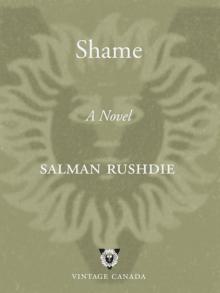 Shame
Shame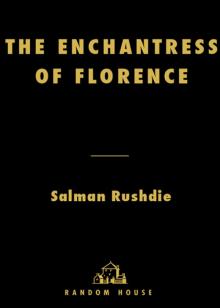 The Enchantress of Florence
The Enchantress of Florence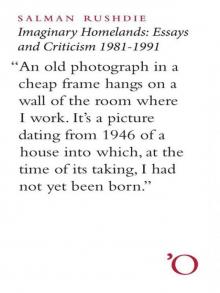 Imaginary Homelands: Essays and Criticism 1981-1991
Imaginary Homelands: Essays and Criticism 1981-1991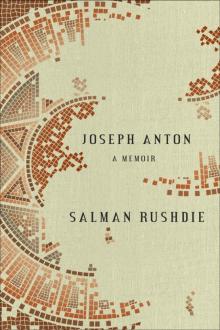 Joseph Anton: A Memoir
Joseph Anton: A Memoir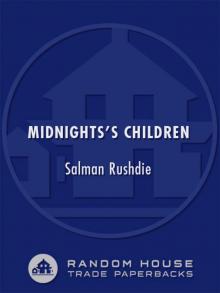 Midnight's Children
Midnight's Children East, West: Stories
East, West: Stories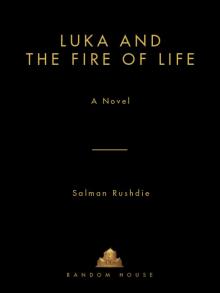 Luka and the Fire of Life
Luka and the Fire of Life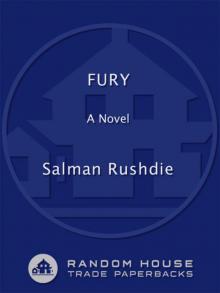 Fury Fury Fury
Fury Fury Fury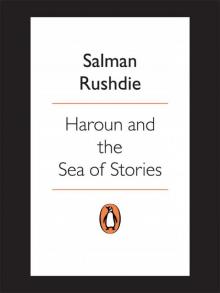 Haroun and the Sea of Stories
Haroun and the Sea of Stories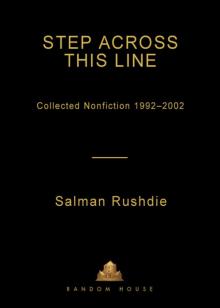 Step Across This Line: Collected Nonfiction 1992-2002
Step Across This Line: Collected Nonfiction 1992-2002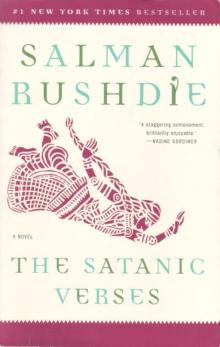 The Satanic Verses
The Satanic Verses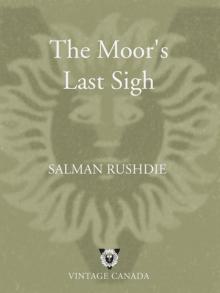 The Moor's Last Sigh
The Moor's Last Sigh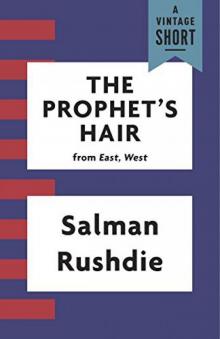 The Prophet's Hair
The Prophet's Hair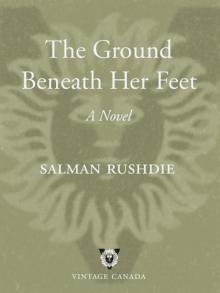 The Ground Beneath Her Feet
The Ground Beneath Her Feet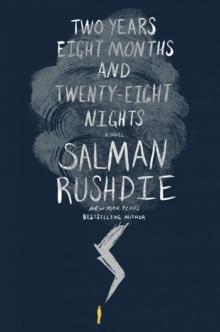 Two Years Eight Months and Twenty-Eight Nights
Two Years Eight Months and Twenty-Eight Nights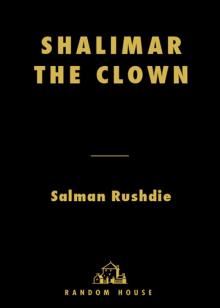 Shalimar the Clown
Shalimar the Clown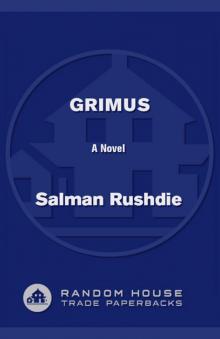 Grimus
Grimus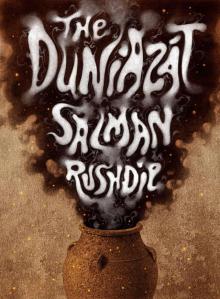 The Duniazát
The Duniazát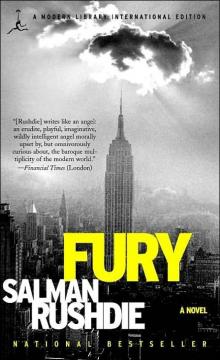 Fury
Fury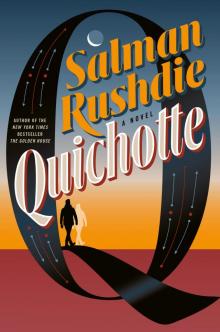 Quichotte
Quichotte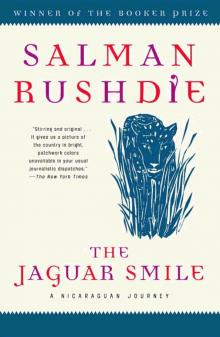 The Jaguar Smile
The Jaguar Smile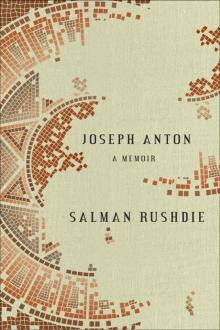 Joseph Anton
Joseph Anton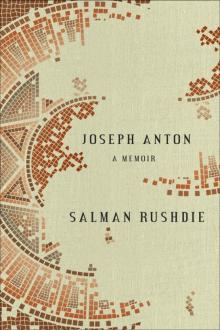 Joseph Anton: A Memoir: A Memoir
Joseph Anton: A Memoir: A Memoir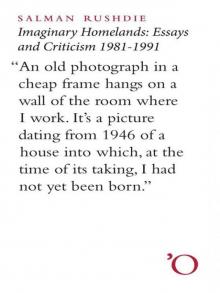 Imaginary Homelands
Imaginary Homelands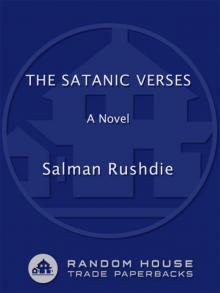 The Satanic Verses: A Novel
The Satanic Verses: A Novel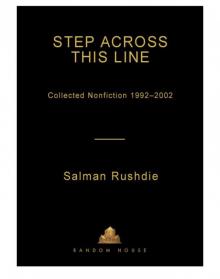 Step Across This Line
Step Across This Line East, West
East, West